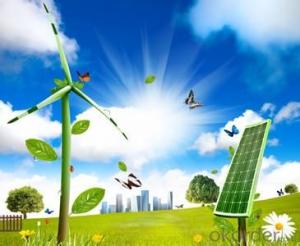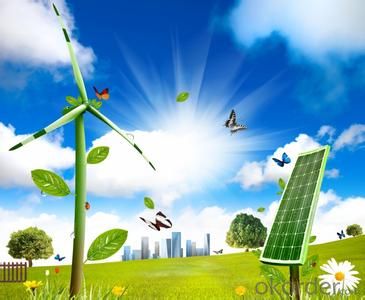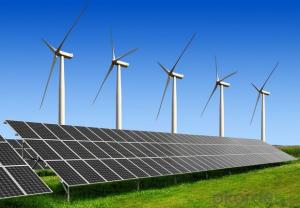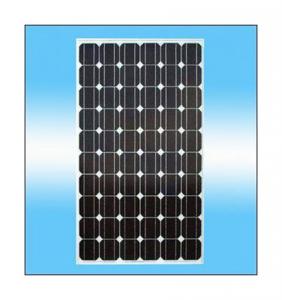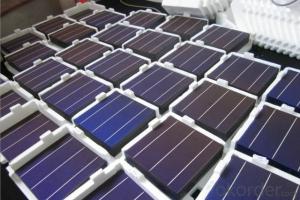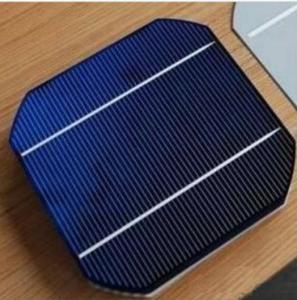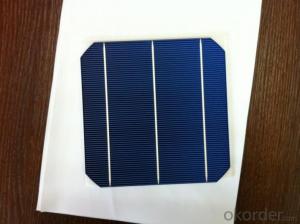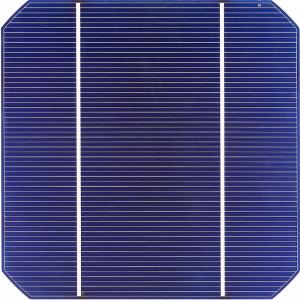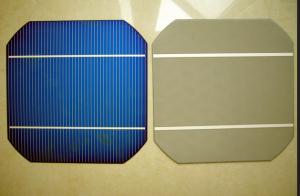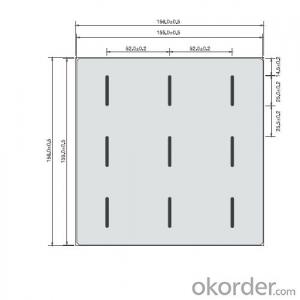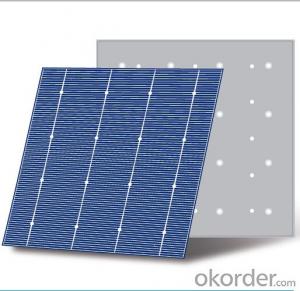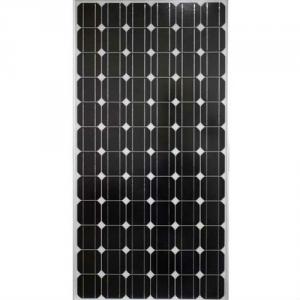Solar Cell Wholesale/monocrystalline silicon solar cell
- Loading Port:
- China Main Port
- Payment Terms:
- TT OR LC
- Min Order Qty:
- -
- Supply Capability:
- -
OKorder Service Pledge
OKorder Financial Service
You Might Also Like
Quick Details
| Model Number: | |||||
| Material: |
Packaging & Delivery
| Packaging Detail: | box, carton. denpending on the size of solar panels |
| Delivery Detail: | 10 days after receiving deposits |
Specifications
1.monocrystalline silicon solar panel
2.high efficiency
3.high transmission rate
4.high wind and hail impact resistanc
monocrystalline solar panel
1. High efficient, high reliable monocrystalline silicon solar cells ensure our product output stability
2. Unique frame design to reinforce sealing and to prevent freezing and warping
3. High transparency low iron tempered glass with enhanced stiffness and impact resistance
4. Advanced EVA encapsulation system with triple-layer back sheet meets the most stringent safety
requirements for high-voltage operation
5. Innovative and environmentally friendly packing
APPLICATIONS
1.Large on and off-grid solar power stations
2.Commercial/industrial building roof-top systems
3.Residential roof-top systems
4.Other industrial and commercial applications
| rated power (W) | 170 |
| short-circuit current (A) | 5.19 |
| open-circuit voltage(V) | 43.2 |
| size L*W*H(mm) | 1580*808*46 |
| weight(Kg) | 16.0 |
- Q: Can solar cells be used on windows?
- Yes, solar cells can be used on windows. Photovoltaic (PV) technology allows solar cells to be integrated into windows, transforming them into transparent solar panels. These solar windows can generate electricity from sunlight while still maintaining the functionality of a regular window. They are being increasingly used in buildings to harness solar energy and contribute to sustainable energy solutions.
- Q: Can solar cells be used for powering outdoor surveillance systems?
- Yes, solar cells can be used for powering outdoor surveillance systems. Solar cells convert sunlight into electricity, making them a sustainable and reliable power source for outdoor applications. This eliminates the need for traditional power sources and allows surveillance systems to operate in remote or off-grid locations. Additionally, solar-powered surveillance systems can be cost-effective and environmentally friendly, reducing energy consumption and carbon emissions.
- Q: What is the role of fuses in solar cell systems?
- The role of fuses in solar cell systems is to protect the system from possible overcurrent or short circuit conditions. Fuses act as safety devices that interrupt the electrical circuit when the current exceeds a certain threshold, preventing damage to the solar cells, wiring, and other components.
- Q: Are solar cells affected by extreme temperatures?
- Yes, solar cells are indeed affected by extreme temperatures. High temperatures can cause solar cells to degrade and operate less efficiently, resulting in a decrease in power output. Similarly, extremely low temperatures can also reduce the performance of solar cells, although to a lesser extent. Therefore, it is important to consider temperature conditions when designing and installing solar panels to optimize their performance and longevity.
- Q: Can solar cells be used for outdoor signage?
- Yes, solar cells can be used for outdoor signage. Solar cells are capable of converting sunlight into electricity, which can power the lighting or display systems used in outdoor signage. This allows for an environmentally-friendly and cost-effective solution for outdoor signage, as it eliminates the need for traditional power sources and reduces energy consumption.
- Q: What is the role of silicon in solar cells?
- The role of silicon in solar cells is to act as a semiconductor material that converts sunlight into electricity through the photovoltaic effect. Silicon is chosen for its ability to absorb photons and release electrons, creating an electric current that can be harnessed as a renewable energy source.
- Q: Can solar cells be used for powering irrigation systems?
- Yes, solar cells can be used for powering irrigation systems. Solar energy can be converted into electricity through solar cells, which can then be used to power irrigation pumps and other components of the irrigation system. This provides a sustainable and environmentally friendly way to meet the energy needs of irrigation systems, especially in remote areas or regions with limited access to the electricity grid.
- Q: Can solar cells be used in powering autonomous vehicles?
- Yes, solar cells can be used in powering autonomous vehicles. Solar panels can be installed on the surface of the vehicle to capture sunlight and convert it into electricity. This renewable energy source can supplement or even replace traditional fuel sources, making autonomous vehicles more sustainable and reducing their carbon footprint.
- Q: Can solar cells be used to power agricultural irrigation systems?
- Yes, solar cells can be used to power agricultural irrigation systems. Solar cells can convert sunlight into electricity, which can then be used to power pumps and other components of irrigation systems. This offers a sustainable and cost-effective solution for powering irrigation systems in remote areas or locations without access to grid electricity.
- Q: Can solar cells be used to power outdoor signage?
- Yes, solar cells can be used to power outdoor signage. Solar cells convert sunlight into electricity, which can then be used to power various devices, including outdoor signage. This approach is eco-friendly, as it relies on renewable energy sources, and it can also be cost-effective in the long run by reducing electricity bills.
Send your message to us
Solar Cell Wholesale/monocrystalline silicon solar cell
- Loading Port:
- China Main Port
- Payment Terms:
- TT OR LC
- Min Order Qty:
- -
- Supply Capability:
- -
OKorder Service Pledge
OKorder Financial Service
Similar products
Hot products
Hot Searches
Related keywords
